-
The Balancing Acts: Communicating Legitimacy in Global Speech Governance Social Media + Society (IF 5.5) Pub Date : 2025-06-03
Diyi LiuThe governance of online speech is increasingly a battleground shaped by competing social expectations. This study investigates TikTok’s content moderation in Indonesia and Pakistan, two countries with vast market potential and delicate social and moral stances. Through document analysis and in-depth interviews with government officials, industry representatives, and civil society experts, it examines
-
How Should We Study Multiple Platforms? Lessons from Deliberative Systems Theory Political Communication (IF 4.6) Pub Date : 2025-06-02
Jennifer Forestal -
The Climate Change Generation: Vocal but Overconfident? How Young Adults Who Overestimate Their Climate Knowledge Use Social Media and Engage With Others Social Media + Society (IF 5.5) Pub Date : 2025-05-31
Niels G. Mede, Lara Kobilke, Nayla Fawzi, Thomas ZerbackResearch suggests that social media can cause users, especially young adults, to overestimate their knowledge about climate change. Knowledge overestimation may then lead users to communicate more frequently about climate change with others. We test these hypotheses with a four-wave panel survey of respondents aged 18–29 years. We find that social media exposure is positively associated with respondents’
-
Candidates Be Posting: Multi-Platform Strategies and Partisan Preferences in the 2022 U.S. Midterm Elections Social Media + Society (IF 5.5) Pub Date : 2025-05-31
Josephine Lukito, Maggie Macdonald, Bin Chen, Megan A. Brown, Stephen Prochaska, Yunkang Yang, Jason Greenfield, Jiyoun Suk, Wei Zhong, Ross Dahlke, Porismita BorahIn this multi-platform, comparative study, we analyze social media messages from political candidates ( N = 1,517) running for Congress during the 2022 U.S. Midterm election. We collect data from seven social media platforms: Facebook, Twitter, Truth Social, Gettr, Instagram, YouTube, and Rumble over the 4 weeks before and after election day. With this unique dataset of posts, we apply computational
-
Identity Roles and Sociality on TikTok: Performance in Hereditary Cancer Content (#BRCA and #Lynchsyndrome) Social Media + Society (IF 5.5) Pub Date : 2025-05-31
Hannah Ditchfield, Stefania VicariDigital platforms have long been understood as important spaces where identity performance takes place with networks and interpersonal interaction forming the basis of many theoretical approaches to self. Due to TikTok’s distinctive technical structure, scholars have argued that processes of sociality and identity construction have changed, calling into question some of the founding principles of how
-
Networked Hyperlocal Activists: Digital Democracy and Engagement in Sub-Saharan Africa Social Media + Society (IF 5.5) Pub Date : 2025-05-31
Nikolaos ToumarasDigital activists play a pivotal role in fostering local democracy, civic participation, and social advocacy across sub-Saharan Africa. Using technological, social, and discursive layers of communication, these activists navigate complex socio-political environments to amplify marginalized voices and facilitate local governance dialogues. Platforms like WhatsApp and Facebook enable real-time communication
-
Clapping Back on TikTok: Black-Asian Multiraciality and Humor Social Media + Society (IF 5.5) Pub Date : 2025-05-31
Ayumi Matsuda-RiveroTikTok has become an important digital space for solidarity among underrepresented groups. However, it is also a space where stereotypes and offensive jokes are proliferated through unique affordances such as “Use This Sound.” For this study, I focused on Black-Asian multiracials known as “Blasians” and how they used TikTok. I analyzed 56 videos, 47 by Blasian creators and nine by non-Blasian creators
-
“Boom-and-Burst”: Linking Online and Offline Elements of Right-Wing “Patriotic” Camps in Brazil Social Media + Society (IF 5.5) Pub Date : 2025-05-31
Fernanda OdillaThis article examines social media’s role in the “online-offline nexus,” focusing on how digital interactions translate into sustained, large-scale, right-wing protests. Using Brazil as a case study, the research combines document analysis with non-participant observation in open right-wing Telegram groups and participant observation at the largest of Brazil’s 100 protest camps. At this camp in Brasília
-
Contested Meanings of Hate Speech and the Post-Truth Condition on Digital Platforms Social Media + Society (IF 5.5) Pub Date : 2025-05-31
Kaarina Nikunen, Paula Haara, Heidi Kosonen, Aleksi Knuutila, Reeta Pöyhtäri, Tuija SaresmaIn the everyday context, the term “hate speech” has become increasingly politicized and emotionally charged, yet these vernacular constructions of hate speech remain under-explored. Used as both a rhetorical weapon and an object of genuine concern, various understandings of hate speech circulate within interactive everyday cultures of digital media, shaped by the digitalised media environment. With
-
Day-to-day Social Interactions Online and Offline: The Interplay Between Interaction Mode, Interaction Quality, and Momentary Well-being Communication Research (IF 4.9) Pub Date : 2025-05-31
Timon Elmer, Aurelio Fernández, Jeffrey A. Hall, Marie StadelDigital social interactions differ in many ways from face-to-face interactions. This study examines four preregistered hypotheses on the within-person interplay between interaction mode (i.e., digital vs. face-to-face interactions), interaction quality, and momentary well-being. Young adults from Spain ( N 1 = 216) and the Netherlands ( N 2 = 22)—provided 5,116 and 1,386 Ecological Momentary Assessments
-
The Immediate and Delayed Beliefs in Headlines With High-arousal Sentence Starters Communication Research (IF 4.9) Pub Date : 2025-05-31
Xiaoyu Zhou, Zhang Tan, Danjun Wang, Fei Wang, Kaiping PengEmotionally charged messages can distort truth perception, and recent research highlights the impact of emotional language on news beliefs. While past studies have focused on emotional valence, the role of emotional arousal in shaping beliefs remains underexplored, particularly regarding its long-term effects. This research investigates both immediate and delayed beliefs in response to headlines with
-
The virtual census 2.0: A continued investigation on the representations of gender, race, and age in videogames New Media & Society (IF 4.5) Pub Date : 2025-05-31
Shawn Suyong Yi Jones, Annie Harrisson, Sâmia Pedraça, Jessie Marchessault-Brown, Dmitri Williams, Mia ConsalvoThis study revisits the original four research questions of Williams et al.’s “The Virtual Census: Representations of Gender, Race and Age in Video Games” to investigate if mainstream videogame representations have changed over time. In addition, this study expands on the original by including a fifth question examining the intersection of representations within videogames. Using a sample of the top
-
Pictorial warning labels reduce sharing intentions, blunt self-relevance processes elicited by social media posts promoting cannabis edibles Journal of Communication (IF 6.1) Pub Date : 2025-05-30
Matt Minich, Lynne M Cotter, Lauren A Kriss, Linqi Lu, Sijia Yang, Christopher N CascioThe implementation of warning labels has been shown to slow the spread of harmful content on social media, but the mechanisms by which these interventions affect individuals' sharing decisions are not yet known. This study sought to establish the efficacy of these interventions and to explore the mechanisms of their influence using two parallel studies conducted within the United States: an online
-
Doing What Is Right: Role of Social Media Users in Resilience to Disinformation Social Media + Society (IF 5.5) Pub Date : 2025-05-29
Karolína Bieliková, Alena Pospíšil Macková, Martina NovotnáResilience to disinformation on social media relies on the user’s ability to critically assess disinformation and even counter it. Active users, who, with their actions, can curate the information environment of others, can play a crucial role in stopping the dissemination of disinformation. Their activities, such as correcting or reporting, in the decentralized social media environment may prove more
-
Accountability through (Inter)Action? A Framework of Affordances for Understanding Civil Society Accountability on Social Media Platforms Social Media + Society (IF 5.5) Pub Date : 2025-05-29
Cecilia Gullberg, Nils GustafssonThis article investigates how social media can enable and constrain civil society organizations’ (CSOs) discharge of accountability. Based on a comparative analysis of the Instagram, Facebook, and Twitter (X) posts of the Swedish Red Cross during 1 year ( N = 1014), we propose a framework of affordances that illustrate how platform features, practices, norms, and perceptions about audiences jointly
-
Local Activism Goes Digital in Authoritarian Setting: The Use of Digital Platforms in Place-Based Conflicts in Russia Social Media + Society (IF 5.5) Pub Date : 2025-05-29
Vsevolod Bederson, Liubov Chernysheva, Andrei SemenovGrassroots activism constitutes the backbone of civil society across political regimes. While many studies explored the role of social media and digital platforms in social movements, we focus on the ways local activists use these social media platforms to organize collectively against unwanted urban development. Localized (place-based) contention differs from large-scale social movements: it is less
-
Examining the Role of Social Media and Imagined Communities in Addressing Social Welfare Gaps in Kenya Social Media + Society (IF 5.5) Pub Date : 2025-05-29
Veronica Ouya, Hawa Conteh, Njeri KagothoIn developing and least developed economies, traditional and spatially bound communities play a critical role in bridging the gap when formal social welfare systems fall short in meeting essential needs. While the role of traditional communities in addressing societal issues is well recognized, research on imagined communities as agents of social welfare is a new and rapidly developing area of study
-
Toward Conceptualizing Bounded Social Media Places Political Communication (IF 4.6) Pub Date : 2025-05-29
Pranav Malhotra -
Some assembly required: Unpacking the content and spread of Wayfair conspiracy theory on Reddit and Twitter New Media & Society (IF 4.5) Pub Date : 2025-05-29
Dror Walter, Ayse D Lokmanoglu, Yotam Ophir, Eduard FabregatWayfair, an American furniture and home goods retailer, garnered sudden attention across social media in 2020, particularly Twitter and Reddit, due to a conspiracy theory linking the company to child trafficking. The short-lived, well-delineated nature of this theory, coupled with its simultaneous emergence across multiple platforms, makes it a distinct case for studying the dynamics of online conspiracy
-
Digital She-nanigans: Social media users’ response toward online hostilities targeting a female science communicator with marginalized identities New Media & Society (IF 4.5) Pub Date : 2025-05-29
Melanie Saumer, Kevin Koban, Jörg MatthesOnline hostility poses a growing societal challenge, yet quantitative evidence on how social media users respond to different kinds of hostility targeting different identities is limited, even though insights into bystander perceptions are detrimental to combat the online hate endemic. This online experiment ( N = 461) examines cognitive (perceived acceptability), affective (negative emotions), and
-
More platforms, less attention to news? A multi-platform analysis of news exposure across TV, web, and YouTube in the United States New Media & Society (IF 4.5) Pub Date : 2025-05-29
Tian Yang, Sandra González-BailónWe gain exposure to news across a range of platforms and, within each platform, across a range of sources. How does a multi-platform media environment shape the news choices we make and the gaps that result from those choices? We address this question tracking news exposure across TV, the web, and YouTube for approximately 55,000 unique US panelists over a period of 39 months. We find important variations
-
What Makes it into the Media? Party Messages, Communication Channels, and Media Outlets The International Journal of Press/Politics (IF 4.1) Pub Date : 2025-05-29
Christoph Ivanusch, Paul BalluffMedia coverage of political actors and debates is a crucial avenue for voters to learn about political parties and their policies. However, nowadays party-media agenda-setting is increasingly shaped by large-scale transformations and the fragmentation of political communication across various party channels (e.g., press releases, social media, speeches) and media types (e.g., newspapers, television
-
What I miss most: Journalists’ rationalization of relational social media use New Media & Society (IF 4.5) Pub Date : 2025-05-28
Alexis Haskell, Logan MolyneuxJournalists’ social media use is a recent example of long-standing gaps between journalistic discourse and journalistic practice. This manuscript applies the sociological concept of rationalization to explain the persistence of this gap, theorizing that the need for rational explanations of one’s work is so powerful for journalists that they offer one description publicly, or to their bosses, while
-
TikTok’s political landscape: Examining echo chambers and political expression dynamics New Media & Society (IF 4.5) Pub Date : 2025-05-28
Yanlin Li, Zicheng Cheng, Homero Gil de ZúñigaUsing a comprehensive dataset of over 160,000 public TikTok accounts and more than 16 million videos, this study indicates a notable increase in political TikTok video content from 2019 to 2023, with a peak around the 2020 US presidential election. The network analysis reveals distinct clusters of politically homogeneous networks or “political echo chambers” where users were exposed to attitude-consistent
-
Online toxic speech as positioning acts: Hate as discursive mechanisms for othering and belonging New Media & Society (IF 4.5) Pub Date : 2025-05-28
Esteban Morales, Jaigris Hodson, Victoria O’Meara, Anatoliy Gruzd, Philip MaiWhile digital platforms foster a sense of community and identity, they also facilitate harmful exclusionary practices. In this context, toxic and hateful speech are key mechanisms not only for harming others but also marking processes of othering and belonging. In this article, we examine the role of hateful and toxic speech in structuring processes of in- and out-group formation and maintenance by
-
Neural Mechanisms of Memory Formation for Tailored Messages: A Neuroimaging Study Journal of Advertising (IF 5.4) Pub Date : 2025-05-27
Luis-Alberto Casado-Aranda, Juan Sánchez-Fernández, Lucia Porcu, Ismet Özer -
Social norms and culture: Theorizing and testing the effects of injunctive norms appeals Communication Monographs (IF 3.1) Pub Date : 2025-05-27
Rain Wuyu Liu, Maria Knight Lapinski -
Platforms as Partners? Dissecting the Interplay Between Civil Society Organizing and Social Media Platforms Social Media + Society (IF 5.5) Pub Date : 2025-05-26
Alice Mattoni, Julie Uldam, Noomi WeinrybA few social media platforms have come to play a central role in civil society organizing, often functioning as organizing partners. But on whose terms? As organizing partners, commercial social media platforms shape the conditions under which civil society actors organize, also shaping organizational dynamics, visibility, and collective action. Far from being neutral partners, these platforms become
-
Turtle, Water, and Silicon: Storyworking Indigenous Digital Methodologies Social Media + Society (IF 5.5) Pub Date : 2025-05-26
Cindy TekobbeThe author of this article contends that current digital research methodologies tend to extract and commodify knowledge in ways that can replicate social, cultural, racial, economic, and global inequities. This article presents an Indigenous approach to digital methodology, including examples of posts to Facebook, Instagram, and Bluesky, as well as algorithmic search results. Finally, the author discusses
-
Comparative Approaches to Studying Privacy: Introduction to the Special Issue Social Media + Society (IF 5.5) Pub Date : 2025-05-26
Christoph Lutz, Lemi Baruh, Kelly Quinn, Dmitry Epstein, Philipp K. Masur, Carsten WilhelmThis editorial introduces the Social Media + Society special issue “Comparative Approaches To Studying Privacy.” Recognizing the importance of privacy in today’s digital societies and volatile political and regulatory environments, the editorial highlights the pressing need for comparative research on the topic and describes the articles in this special issue. The special issue addresses the theoretical
-
Digital storytelling and public stigma: Investigating recovery narratives and intersectionality Communication Monographs (IF 3.1) Pub Date : 2025-05-26
Ruth A. Osoro, Rachel A. Smith, Glenn Sterner -
The New Experts of Online Dating: Feminism, Advice, and Harm on Instagram Social Media + Society (IF 5.5) Pub Date : 2025-05-24
Joanna Large, Natasha MulvihillSituated within the theoretical work of Giddens and others on the role of expertise in contemporary society, this article evaluates the Instagram accounts of six dating-themed influencers. We seek to understand the role and strategies of these “new experts” in presenting, evaluating, and responding to contemporary heterosexual dating harms. Our analysis is informed by the existing literature on digital
-
Emotion Sells: Rage Bait vs. Information Bait in Clickbait News Headlines on Social Media Digital Journalism (IF 5.2) Pub Date : 2025-05-23
Jieun Shin, Chris DeFelice, Soojong Kim -
The Perfect Li(f)e: A Longitudinal Study on Positive Social Media Content and European Adolescents’ Perfectionism Communication Research (IF 4.9) Pub Date : 2025-05-23
Gaëlle Vanhoffelen, Anaëlle Gonzalez, Lara Schreurs, Caroline Giraudeau, Laura VandenboschYouth perfectionism levels have increased significantly over the last decades. Given the dominance of picture-perfect content, social media are often designated as contributors of this rise. Accordingly, this study examined how exposure to positive social media content might increase adolescents’ perfectionistic dispositions and vice versa. Moreover, it was explored whether upward social comparison
-
United in Difficult Times? Investigating Party Communication on EU Solidarity Political Communication (IF 4.6) Pub Date : 2025-05-22
Mohamed Nasr, Ann-Kathrin Reinl -
“They’re trying to influence me to gain the more acceptable viewpoint”: The algorithmic imaginaries of politically activated social media users New Media & Society (IF 4.5) Pub Date : 2025-05-22
Raven Maragh-Lloyd, Ryan Stoldt, Javie Ssozie, Kathryn Biddle, Brian Ekdale, Tim HavensLinks between extremism online and personalization algorithms are, by now, widely accepted. However, discussions surrounding sociopolitical radicalization and its relationship to filter bubbles often fail to account for user agency. Based on interview ( N = 29) and survey ( N = 1100) data, our study asks how politically engaged social media users make sense of algorithmic personalization related to
-
Templates and sovereignty: Wikipedia’s policy development and the reflection of community consensus New Media & Society (IF 4.5) Pub Date : 2025-05-21
Steve Jankowski, Claudio Celis Bueno, Ouejdane Sabbah, Jakko KemperThis article examines how Wikipedians embed their sovereign authority within the development of the site’s multilingual policy environment. By drawing on the concepts of cultural techniques, imagined affordances, and online authority, the edits and comments of editors were examined through a discourse analysis of 15 rules across 15 years. With a focus on the English and Spanish-language Wikipedias
-
Culture machine: How MetaCLIP codifies culture New Media & Society (IF 4.5) Pub Date : 2025-05-21
Luke Munn, Adarsh BadriHow is the cultural made computational? CLIP models are a recent artificial intelligence (AI) innovation which train on massive amounts of Internet data in order to align language and image, deploying this ‘grasp’ of cultural concepts to understand prompts, classify images and carry out tasks. To critically investigate this cultural codification, we explore MetaCLIP, a recent variation developed by
-
The Extended Morality as Cooperation Dictionary (eMACD): A Crowd-Sourced Approach via the Moral Narrative Analyzer Platform Communication Methods and Measures (IF 6.3) Pub Date : 2025-05-20
Musa Malik, Sungbin Youk, Frederic R. Hopp, Oliver Scott Curry, Marc Cheong, Mark Alfano, René Weber -
From Disruptive Protests to Disrupted Networks? Analyzing Levels of Polarization in the German Twitter/X Debates on “Fridays for Future” and “Letzte Generation” Social Media + Society (IF 5.5) Pub Date : 2025-05-20
Hendrik Meyer, Louisa Pröschel, Michael BrüggemannExamining how different forms of climate protest affect social media debates is critical to understanding their role within societal climate policy discourse. This study compares debates surrounding disruptive and non-disruptive movements on Twitter/X, asking to what extent they lead to ideologically and affectively polarized networks. We analyzed debates around two prominent German climate movements—Fridays
-
In the Mood for Likes: A Longitudinal Study of Civil Society Organizations’ Emotional Communication on Social Media Social Media + Society (IF 5.5) Pub Date : 2025-05-20
Nils Gustafsson, Nils Holmberg, Noomi Weinryb, Anders Olof LarssonEmotional communication, especially through social media platforms, has become a contemporary populist threat. While this phenomenon has been studied in for example news media and social movements, we know less about its influence on civil society organizations, despite their pluralism being a centerpiece in a vibrant democracy. More specifically, we do not know if social media make civil society organizations
-
Cumulative disinformation through citation: Investigating the longitudinal construction of Sweden as the ‘rape capital’ of the world New Media & Society (IF 4.5) Pub Date : 2025-05-20
Mathilda Åkerlund, Jesper StrömbäckSweden has increasingly come into international far right focus, and digital media sites in the United States have proven especially active in spreading mis- and disinformative narratives about the country. Using social network analysis and descriptive statistics, we trace 776 links over a 27 year-period to understand how U.S. far-right media sites construct the idea of Sweden as ‘the rape capital’
-
Riding the short video wave: Sense of agency in motion among young users on Douyin New Media & Society (IF 4.5) Pub Date : 2025-05-20
Yi Xu, Jiahe Wang, Zili ChenThis study examines how young Douyin users navigate algorithm-driven short video platforms, emphasizing their sense of agency (SoA) in shaping engagement strategies. Based on in-depth interviews with 25 users, we identified four engagement statuses—High SoA Use, Low SoA Use, High SoA Nonuse, and Low SoA Nonuse—and two strategic transitions: Disengagement and Reengagement. These transitions illustrate
-
The platformization of emotions: Managing affective labor in platform-mediated game work New Media & Society (IF 4.5) Pub Date : 2025-05-20
Ting He, Colin AgurThis study examines the management of affective labor on E-Pal, a US-based gaming freelancer platform where gig workers provide companionship and intimacy to clients during gaming. Based on interviews with 27 workers, the research reveals that E-Pal prioritizes emotional connection over gaming skills. The platform uses authenticity expectations, performance evaluations, and gamification to regulate
-
Radicalization or relief: Divergent impacts of the COVID-19 lockdown on incels by seniority New Media & Society (IF 4.5) Pub Date : 2025-05-20
Lion Wedel, Linda CoufalIncels (involuntary celibates) base their identity on the inability to form romantic relationships. We conceptualize the ideology promoted by incels as misogynist extremism and explore the impact of the first COVID-19 lockdown on the radicalization of this online community. Based on computational measures, we conducted a multi-perspective exploration, comparing the prevalence of and participation in
-
Beyond “Emergencies?" Reporting on Humanitarian Issues Around the World Digital Journalism (IF 5.2) Pub Date : 2025-05-19
Kate Wright, Dani Madrid-Morales, Christopher Barrie -
Exploring social media users’ experiences with algorithmic transparency cues New Media & Society (IF 4.5) Pub Date : 2025-05-19
Anne Oeldorf-Hirsch, Lili R Romann, Isabella Witkowich, Jiayi ChenAll mainstream social media platforms now use algorithms to display recommended content, and some (e.g. Instagram, LinkedIn) have started showing what we call algorithmic transparency cues about why certain posts are recommended. However, little is known about what cues users see on their own feeds and how they experience them. Thus, using an online survey ( N = 515) of adult U.S. social media users
-
‘Now you’re home’: Awareness cues, rejection and post-digital safety on mobile dating apps New Media & Society (IF 4.5) Pub Date : 2025-05-19
Giulia Campaioli, Adriano Zamperini, Marta CecchinatoMobile dating apps (MDA) are popular for intimate encounters, but romantic rejection is common, and can drive surveillance using information from social media. Awareness cues convey digital information about others’ activities, but their link with rejection is underexplored. This study explores the uses of awareness cues in mobile dating applications (MDAs) in relation to rejection, social surveillance
-
Media coverage and public attention to “fake news”: The moderating role of economic conditions and market-oriented media systems New Media & Society (IF 4.5) Pub Date : 2025-05-19
Andrea Ceron, Alessio ScopellitiFake news represents a threat to our society since people can face unverified and sensational information. News media can play a crucial role in disclosing and correcting misinformation. This paper argues that higher media coverage can anticipate an increase in public attention to the issue of fake news. Such relationship can be moderated by the country’s economic conditions and by the type of media
-
The interweaving functions of entertainment media: A cross-media study of Norwegian teens New Media & Society (IF 4.5) Pub Date : 2025-05-19
Marika LüdersMedia entertainment today extends beyond conventional formats like TV shows, music, films, video games, and books to include social media content. This article explores how teens integrate conventional and social media entertainment into their media repertoires, and how they reflect on the interrelations of different media in the context of their daily lives. Using Q-methodology and qualitative interviews
-
Tracing Knowledge Gaps: Investigating the Influence of Education on News Exposure and Knowledge Using Digital Trace Data The International Journal of Press/Politics (IF 4.1) Pub Date : 2025-05-19
Dominique S. Wirz, Ernesto de León, Silke Adam, Mykola MakhortykhThe knowledge gap hypothesis—the assumption that an increasing flow of news on a topic fosters a gap in knowledge between the more and the less educated—has been demonstrated in numerous studies throughout the past 60 years. Knowledge gaps are attributed to individual differences in media selection and information processing capacities. However, it has been difficult to investigate the relative influence
-
Addressing a Blind Spot in Selective Exposure Research: Perceptions of Media Bias and Their Effects on Mainstream Media Use. A Mediation Analysis The International Journal of Press/Politics (IF 4.1) Pub Date : 2025-05-19
Jesper Strömbäck, Sofia Johansson, Elena Broda, Erik Espeland, Hugo EkströmAccording to selective exposure theory, people tend to select news media that are perceived to provide attitude-consonant information and avoid those that are perceived to provide dissonant information. Despite this, research on selective exposure seldom takes people’s perceptions of media bias into account, while research on perceptions of media bias seldom links such perceptions to subsequent media
-
Aligning Emotions: A Comparative Analysis of Text and Imagery by European Party Leaders on Instagram The International Journal of Press/Politics (IF 4.1) Pub Date : 2025-05-19
Silvia Decadri, Moreno Mancosu, Fedra Negri, Gaetano ScadutoThis study explores the interplay of imagery and text in online political communication by European party leaders. We examine how visual and textual components combine to convey emotions in Instagram posts published by one hundred twenty-four mainstream and populist leaders of one hundred fourteen parties in twenty-four EU countries, covering 3 months before and after the 2019 European elections. Images
-
From Automation to Transformation with AI-Tools: Exploring the Professional Norms and the Perceptions of Responsible AI in a News Organization Digital Journalism (IF 5.2) Pub Date : 2025-05-17
Hannes Cools, Claes H. de Vreese -
Cinch, filter, erase: Virtual bodies and the editable self New Media & Society (IF 4.5) Pub Date : 2025-05-17
Julia Coffey, Amy Dobson, Akane Kanai, Rosalind Gill, Niamh WhiteSelfie-editing technologies (including in-phone editing tools, filters, and apps like Facetune) provide the ability digitally edit and “enhance” facial and body features in photos. This article extends a theorization of “the virtual” developing from earlier approaches in feminist sociology and digital media studies, to consider the implications of selfie-editing capacities for how young people navigate
-
Influencing for the greater good: Data mining of social media influencers’ social cause communication New Media & Society (IF 4.5) Pub Date : 2025-05-17
Angie Lee, Te-Lin Doreen Chung, Olivia JohnsonRecently, social media influencers have promoted social campaigns and movements, contributing to heightened interest and concern among the public about social causes. This study explores influencers’ social cause communication to understand message attributes, which may be catalysts in increasing public attention to the message and engagement in social causes. Data from Instagram were collected, and
-
RIP #almedalen: The rise and fall of the hashtag of a Swedish democracy festival New Media & Society (IF 4.5) Pub Date : 2025-05-17
Nils Gustafsson, Anders Olof LarssonDemocracy festivals are events that aim to strengthen democracy by engaging citizens, politicians and organisations in dialogue and provide a more equal access to the agenda. In recent years, social media have become important arenas for agenda building, supposedly equalising the access to such processes. This article uncovers patterns of activity and visibility in agenda building through an actor-centric
-
Visibility in the shadows: Tips in mainstream versus alternative streaming on Chaturbate New Media & Society (IF 4.5) Pub Date : 2025-05-17
Emilija Jokubauskaitė, Stijn PeetersWebcam sex platforms represent an important sector of the creator economy. Yet, there is a great scarcity of research on revenue flows and performer income. To address this, we collected and analyzed a dataset comprising 2 weeks of tips received by performers on Chaturbate, a prominent camming platform. Our findings reveal that income is highly unevenly distributed, with only a small group of mostly
-
Psychological Distance Matters: The Interaction Between Content Display Order and Expectations of Change in Multi-Content Instagram Posts Journal of Advertising (IF 5.4) Pub Date : 2025-05-16
Jung Min Jang, Eun Young Park -
Do They Even Care? Empirical Evidence for the Importance of Listening in Democracy Political Communication (IF 4.6) Pub Date : 2025-05-16
Ethan C. Busby, Andrew Ifedapo Thompson, Suzy Yi






























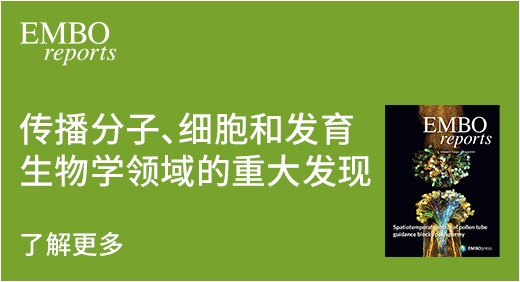
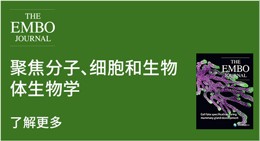







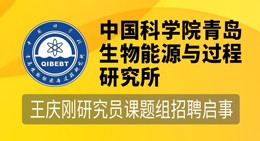
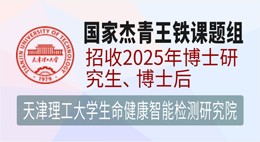



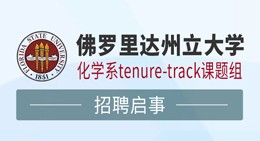
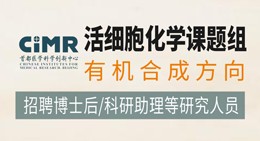




 京公网安备 11010802027423号
京公网安备 11010802027423号